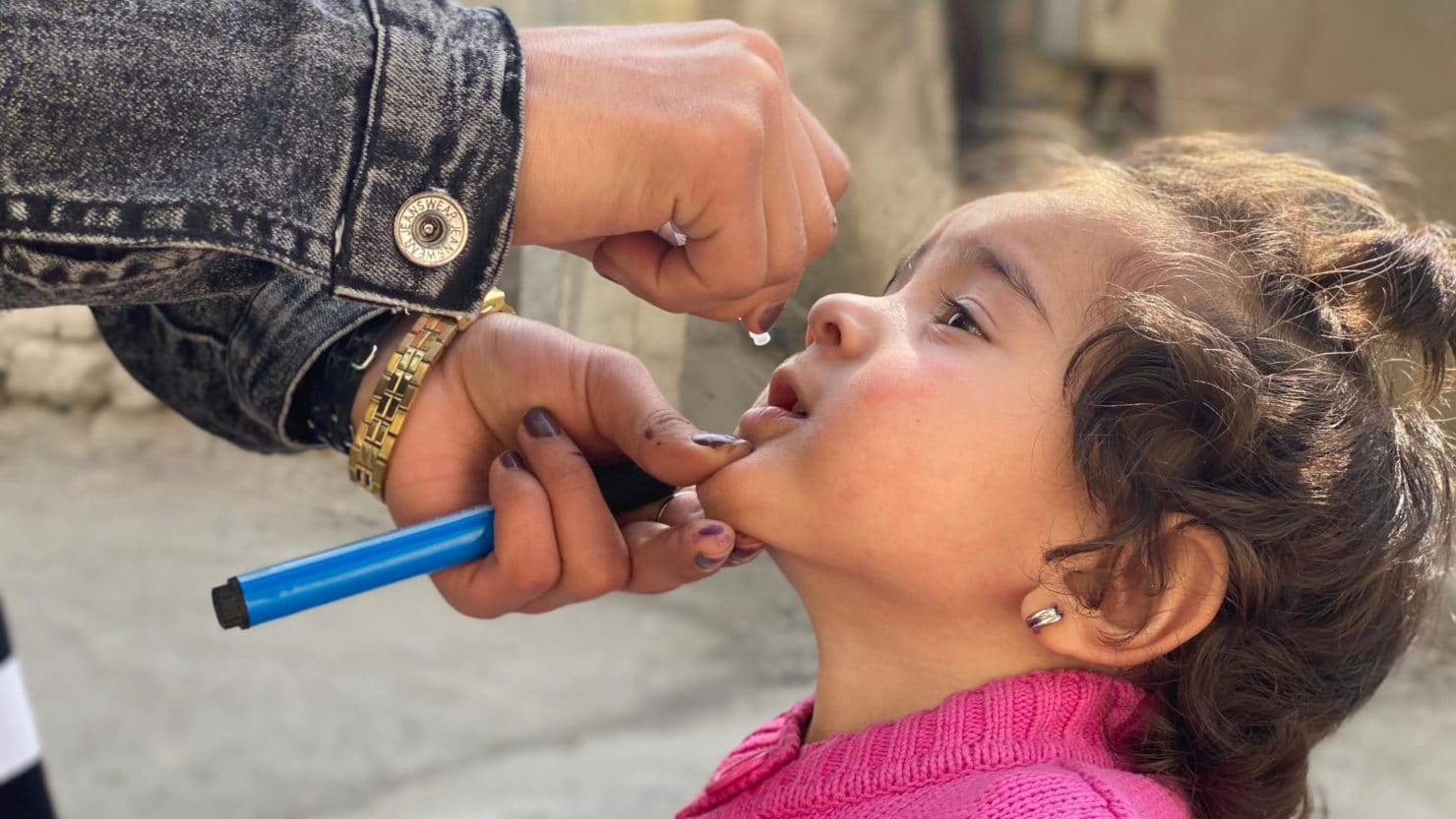WHEN SAIDGUL WAS around 6 months old this past March, his parents decided to take him to Herat, a city about 80 miles from their hometown in Shindand District in Herat Province in western Afghanistan. The road between the two towns is partially unpaved and can be treacherous, infested with Taliban checkpoints.
In Herat, they hoped to get Saidgul vaccinated against polio, since clinics in their district had shut down without warning due to the Covid-19 pandemic. The nationwide lockdowns were yet to be announced, but Herat Province — which shares a bustling border with Iran, a country hit hard by the pandemic — was also reeling toward a crisis.
“When we first came to the Herat 100-bed hospital, the main gate was shut because of coronavirus and they didn’t let people enter,” Saidgul’s father, Anargul, told Undark. “We returned later but they told us they weren’t letting anyone inside because of coronavirus.”
Unable to get his son vaccinated, Anargul, who like most Afghans goes only by one name, returned to Shindand with his family. But later, the parents noticed that Saidgul was not able to move his left leg. A few days after that, Anargul said, “We were at a party of a relative when we realized that he was not able to move his other leg either. Both his legs were limp.”
The family rushed Saidgul to a doctor, who suspected it was polio, or poliomyelitis, a dreaded disease that had been rumored to have returned to their region. The results confirmed it, said Abdulwahid Rahmany, a vaccination officer for the West Zone that covers Herat province. It was only the second case of polio to have emerged from Herat “in many years,” he added.
Polio vaccinations are largely targeted to very young children and are highly effective. In the past, polio cases mostly flared up in regions coping with military conflict and Taliban insurgency. Even so, in recent years, health officials had “managed to eradicate polio from many parts of Afghanistan,” said Merjan Rasekh, head of public awareness for the Polio Eradication Program run by the Ministry of Public Health. But now, the Covid-19 pandemic is remapping polio across the country, creating pockets of cases where there recently were none.
“We had to halt the polio campaign between February 2020 and August 2020 due to Covid-19 lockdowns,” Rasekh said. “It created a big gap in the number of children we were able to reach compared to past years.” Saidgul is among 54 new cases of polio in 2020, the highest number on record since the fall of the Taliban in 2001, Rasekh added. All the recent cases involve children between the ages of 3 months and 3 years, according to the ministry.
According to the United Nations Children’s Fund (UNICEF), the disruption in immunization due to the pandemic left a total of 50 million children without their polio vaccine in Afghanistan and Pakistan, the last two polio-endemic countries in the world.
Rahmany’s experience in Herat is emblematic of the problem. As families stay home in the epicenter of the Covid-19 pandemic in Afghanistan, he said the Taliban doesn’t always let vaccination teams conduct door-to-door campaigns. “We kept the clinics open, but due to the lockdowns and quarantine and insecurity, parents were not able to bring their children for vaccinations,” he said.
“As a result,” he added, “we only managed to reach 15 percent of our expected coverage.”
Read full report on Undark
